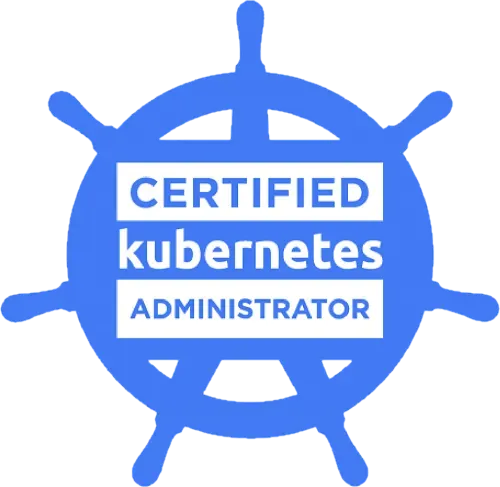Kubernetes Learning Path
Embark on a guided journey with KodeKloud's Learning Paths. Master essential tech skills in DevOps, Kubernetes, Docker, and CI/CD through hands-on, just-in-time learning.
.svg)
.svg)
.svg)
.svg)
How long will it take for me to complete?
Test your Readiness for Free!
Topic based learning paths
CKA
CKAD
CKS
CI/CD
Role based learning paths
FAQs
What is Kubernetes?
Kubernetes is an open-source container orchestration platform that automates the deployment, scaling, and management of containerized applications.
What are the key components of Kubernetes?
Kubernetes consists of several key components, including the master node (control plane) and worker nodes, which collectively manage and run containerized applications. Other components include etcd, kubelet, kube-proxy, and various controllers.
What are the benefits of using Kubernetes?
Kubernetes offers benefits such as scalability, fault tolerance, automated application deployment and management, efficient resource utilization, service discovery, and rolling updates, making it easier to manage and scale applications in a distributed environment.
Do I need prior knowledge of containers to start with this learning path?
No, the learning path includes a course called "Docker Basics - Containerization" that covers the fundamentals of containers, making it suitable for beginners.
Which certification should I pursue first, CKA or CKAD?
It depends on your career goals. CKA (Certified Kubernetes Administrator) focuses on cluster administration, while CKAD (Certified Kubernetes Application Developer) targets application deployment and management. Choose based on your interests and job requirements.
Is Helm necessary to learn for Kubernetes?
Helm is a popular package manager for Kubernetes, which simplifies application deployment. It is widely used and recommended for managing complex applications on Kubernetes, making it beneficial to learn.
What is the significance of Istio Service Mesh in Kubernetes?
Istio provides advanced networking capabilities for microservices running on Kubernetes, offering features like traffic management, observability, and security. It is highly relevant for managing distributed systems.
How important is monitoring in a Kubernetes environment?
Monitoring is crucial for observing the health and performance of Kubernetes clusters and applications. Prometheus is a widely used monitoring toolkit specifically designed for Kubernetes.

.svg)








.svg)






.webp)

.webp)





.webp)




.svg)







